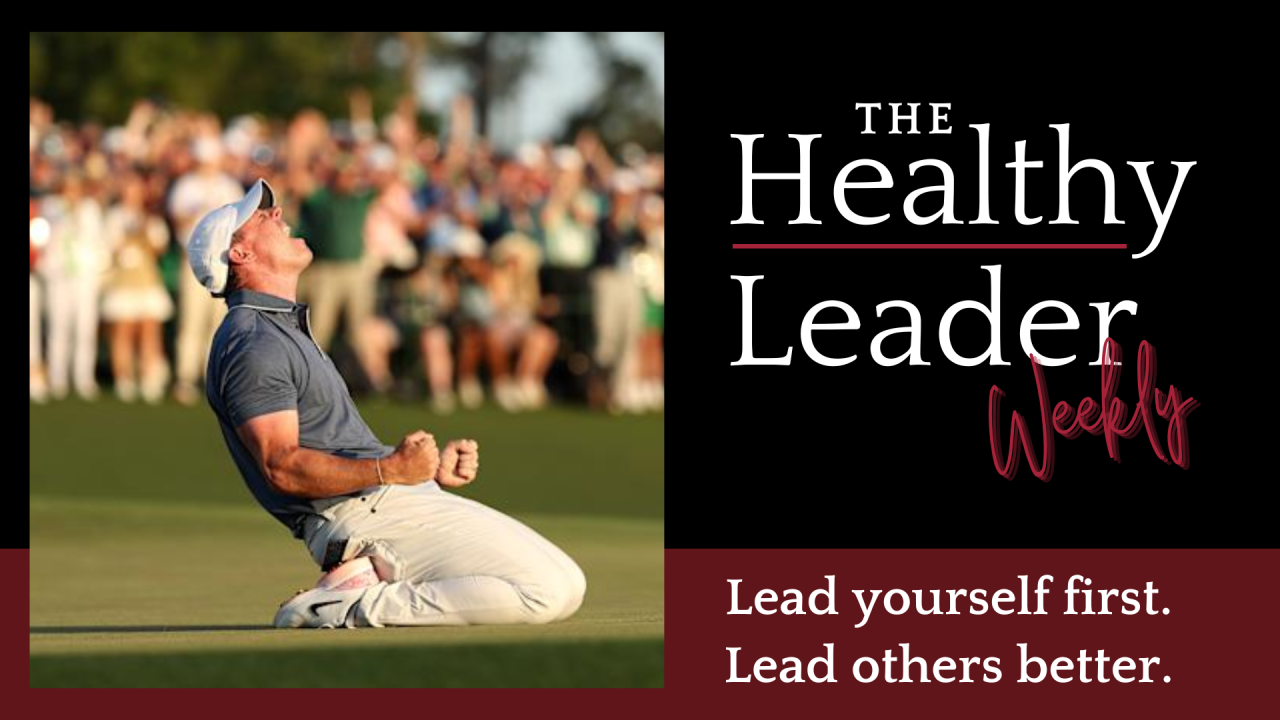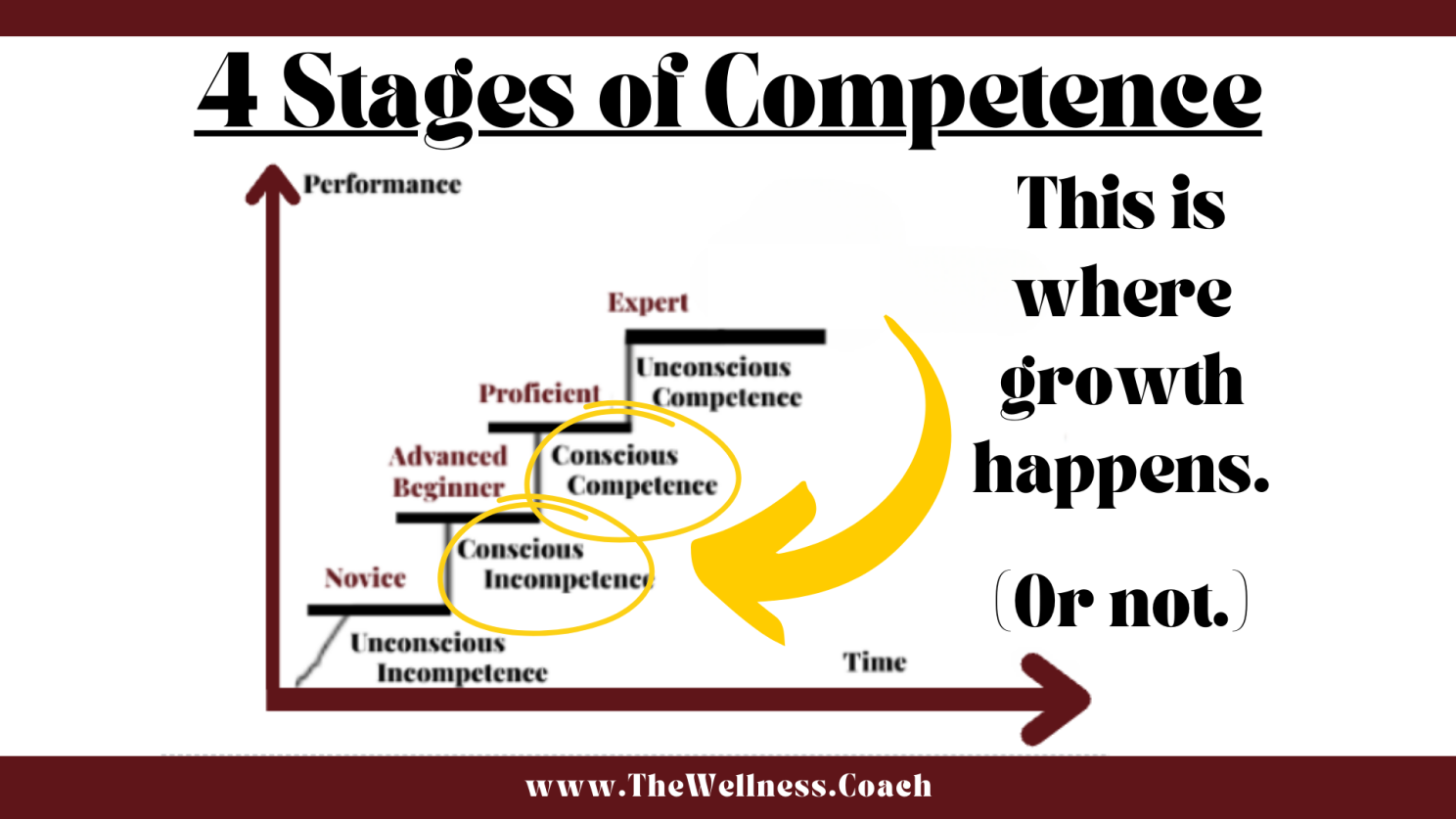Masters of Resilience: Rory McIlroy's Green Jacket Journey

From Double Bogeys to Dreams: Rory McIlroy's Leadership Lesson
Rory McIlroy just did it.
After a decade of heartbreaks, near-misses, and countless "So when are you going to win the Masters?" questions at dinner parties, he's finally slipped on that elusive green jacket. He now sits in the most exclusive club in golf—the career Grand Slam winners—alongside Tiger Woods, Jack Nicklaus, Ben Hogan, Gary Player, and Gene Sarazen.
Six names. That's it. In the entire history of the sport.
Beauty in the Struggle
Let's be clear about something fascinating: this wasn't a flawless victory. Not even close.
Rory double-bogeyed four times across the tournament—including the very first hole on Sunday's final round. In fact, he became the first Masters winner ever to card four double bogeys, with two of them being sevens. For non-golfers, that's like accidentally sending "I quit" emails to your boss—twice—and still getting promoted to CEO by the end of the week.
Think about that. Imagine tripping on the red carpet before giving your TED Talk. On live television. While people who've bet their savings on you are watching. That's the psychological equivalent of double-bogeying the first hole at Augusta when you're chasing the one major that's eluded you for a decade.
Most people would crumble. Rory didn't.
The Hidden Psychology of Mastery
What Rory understands—and what most of us don't think about often enough—is how competence actually works in high-stakes situations.
The Four Stages of Competence is a psychological model that explains our journey from novice to master. But champions like Rory know something crucial: these stages aren't a one-way street. They're a cycle we constantly move through, especially under pressure.
Stage 1: Unconscious Incompetence
You don't know what you don't know. You've never heard of the skill, or you're completely unaware of how bad you are at it. "Golf? That's just walking with sticks, right? How hard could it be?"
Stage 2: Conscious Incompetence
Reality check. You've now seen the gap between where you are and where you want to be. You know you're not good, and you're acutely aware of it. "Wow, this game is brutal. I need serious help."
Stage 3: Conscious Competence
You're capable, but it requires intense focus. Everything feels manual and deliberate. You can execute, but only with full concentration. "Keep your head down. Elbow in. Slow backswing. Don't panic."
Stage 4: Unconscious Competence
The holy grail. It clicks. You perform without thinking. It's second nature. You're in flow state. "You don't play golf. You are golf."

Rory's Real Superpower: Navigating the Middle Transition
Most people think greatness means permanently living in Stage 4. But under championship pressure—when the lights are brightest and your competitors are breathing down your neck—you don't always get to stay there.
Rory's victory at Augusta was a masterclass in psychological resilience because he constantly flipped back and forth between feeling locked in and suddenly shaky. His chip into the water on hole 13? That's a classic slip back into Stage 2. The up-and-down saves that followed? That's a gritty climb back into Stage 3. The pressure in the sudden-death playoff against Justin Rose? That's finding Stage 4 when it mattered most.
He had to recalibrate constantly. And that's not failure; that's resilience. That's grit. That's courage. That's character. That's leadership.
When you're pushing your limits, your sense of competence naturally wobbles. The question isn't "Can I stay in flow?" It's "Can I find my way back to it quickly when I inevitably lose it?"
After sinking the winning putt, Rory said just four words: "Dreams do come true." Said it online. Said it to his daughter. That's legacy stuff.
What Leaders Need to Know About This Mental Model
Here's where this becomes more than just another golf story.
If you lead people—teams, businesses, classrooms, families—you're in the business of moving others (and yourself) through these four stages. Understanding this model transforms how you think about performance and development.
1. The Self-Awareness Advantage
Knowing which stage you're in keeps you both humble and focused. It reminds you that confidence without skill is dangerous (Stage 1), and that mastery without humility can become complacency.
When was the last time you honestly assessed which stage you're in for your most critical skills? Are you as good as you think you are at giving feedback? At strategic thinking? At listening?
2. The Leadership Development Framework
When someone on your team is struggling, don't just ask, "Why can't they do this?" Ask: "Which stage are they in right now?"
Teaching looks different depending on the stage:
- For Stage 1: Create awareness through exposure and examples
- For Stage 2: Provide structured guidance and frequent feedback
- For Stage 3: Offer practice opportunities with decreasing supervision
- For Stage 4: Create challenges that push boundaries into new areas
3. The Resilience Protocol
Great leaders prepare their teams for slippage. They expect people to dip between stages 2 and 3 under stress—and they help them shift back with clarity and encouragement, not criticism.
Do your people know it's normal to wobble? Do they have protocols for getting back on track when they feel themselves slipping?
4. The Pressure Performance Playbook
Like Rory, your best people won’t always feel confident in high-stakes moments. That doesn’t mean they’re failing—it means they’re in the arena.
Rory has been working with renowned sports psychologist Dr. Bob Rotella, author of Golf Is Not a Game of Perfect. On Sunday, they weren’t talking mechanics—they were talking resilience.
That’s what mattered most.
Rotella’s philosophy is clear: great performers don’t eliminate doubt—they manage it. They recover fast. They stay focused on what they can control when everything feels off.
That’s exactly what Rory did. After four double bogeys and a playoff, he stayed mentally agile and emotionally steady. That’s not talent. That’s trained resilience.
As a leader, your role isn’t to demand perfection. It’s to help your people recover quickly when things go wrong. To normalize the wobble—and coach them through it.
That’s your pressure playbook.

The Deeper Truth About Excellence
Whether you're trying to lead a company, scale a startup, or just show up as a better version of yourself—you're never done cycling through these stages. The better you get, the tougher the challenges. The game keeps leveling up.
Rory's victory wasn't about finally "arriving" at mastery. It was about his capacity to navigate the psychological roller coaster that comes with pushing your limits.
The Leadership Resilience Gap: Why This Matters Now
Recent research shows that only 25% of leaders globally lead highly resilient organizations, while 46% admit they fall short in addressing core challenges like productivity, innovation, and crisis response. In times of crisis, both transformational and directive leadership styles have been shown to significantly and positively predict organizational resilience, especially when leaders foster psychological capital—optimism, hope, and confidence—within their teams.
Yet, the pressure is immense: 82% of senior leaders report exhaustion indicative of burnout risk, and 51% have considered leaving their roles. Most leaders (63%) do not make time for their own well-being. The ability to recover from setbacks, as McIlroy did repeatedly at Augusta, is not just a sports lesson—it's a survival skill for modern leadership.
Your Turn: The Leadership Swing Thought
So next time you feel that wobble—when you're suddenly unsure, second-guessing, or just plain doubting yourself—don't panic.
You're just shifting stages. Take a breath. Adjust your grip. And swing again.
Because that's what champions do. That's what Rory did.
The Masters isn't about mastery. It's about mastering the journey between confidence and doubt, between knowing and learning, between falling and rising.
Just like leadership.
Traci Fisher helps leaders stay steady when the stakes are high. As the creator of the Healthy Leader® Operating System, she works with high performers to cut through noise, reset their focus, and build the kind of resilience that actually holds up under pressure.
With a background in neuroscience, leadership coaching, and years advising Fortune 500 execs, Traci doesn’t just talk mindset—she teaches leaders how to shift it in real time. The result? Clearer thinking. Stronger decisions. And teams that move forward instead of stalling out.
If you’re ready to lead yourself the way you lead others—especially when things get uncomfortable—let’s talk. 🔗 www.thewellness.coach

